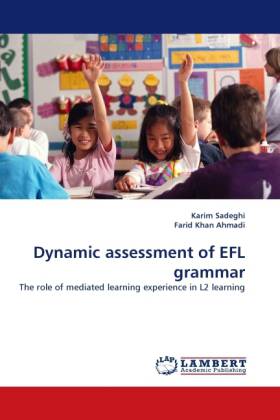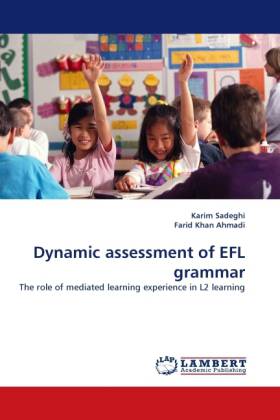
- Afhalen na 1 uur in een winkel met voorraad
- Gratis thuislevering in België vanaf € 30
- Ruim aanbod met 7 miljoen producten
- Afhalen na 1 uur in een winkel met voorraad
- Gratis thuislevering in België vanaf € 30
- Ruim aanbod met 7 miljoen producten
Zoeken
Dynamic Assessment of Efl Grammar
The role of mediated learning experience in L2 learning
Karim Sadeghi, Farid Khan Ahmadi
Paperback | Engels
€ 48,45
+ 96 punten
Omschrijving
An integral requirement of any educational program is the chance to evaluate the effectiveness of the delivery of education. Traditionally evaluative tools of various sorts have been used to measure the process and product of teaching. More recently however as far as English as a second/foreign language is concerned more innovative alternative assessment procedures have been practiced for decades. The problem however with all such assessment techniques has been that they have been static in nature in that they have been meant to measure the product rather than the process of education. Dynamic assessment, which views assessment as an integrated part of teaching rather than as its final loop, has accordingly been proposed as an alternative and complement to static or standardized types of assessment. The focus of this book is on the viability of using dynamic as an instructional adjunct in the development of EFL learners' grammar. The audience of the book includes assessment experts, ELT professionals and SLA researchers.
Specificaties
Betrokkenen
- Auteur(s):
- Uitgeverij:
Inhoud
- Aantal bladzijden:
- 112
- Taal:
- Engels
Eigenschappen
- Productcode (EAN):
- 9783844396331
- Verschijningsdatum:
- 25/05/2011
- Uitvoering:
- Paperback
- Formaat:
- Trade paperback (VS)
- Afmetingen:
- 152 mm x 229 mm
- Gewicht:
- 176 g

Alleen bij Standaard Boekhandel
+ 96 punten op je klantenkaart van Standaard Boekhandel
Beoordelingen
We publiceren alleen reviews die voldoen aan de voorwaarden voor reviews. Bekijk onze voorwaarden voor reviews.











